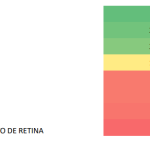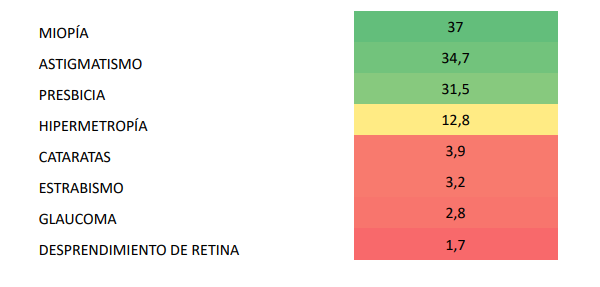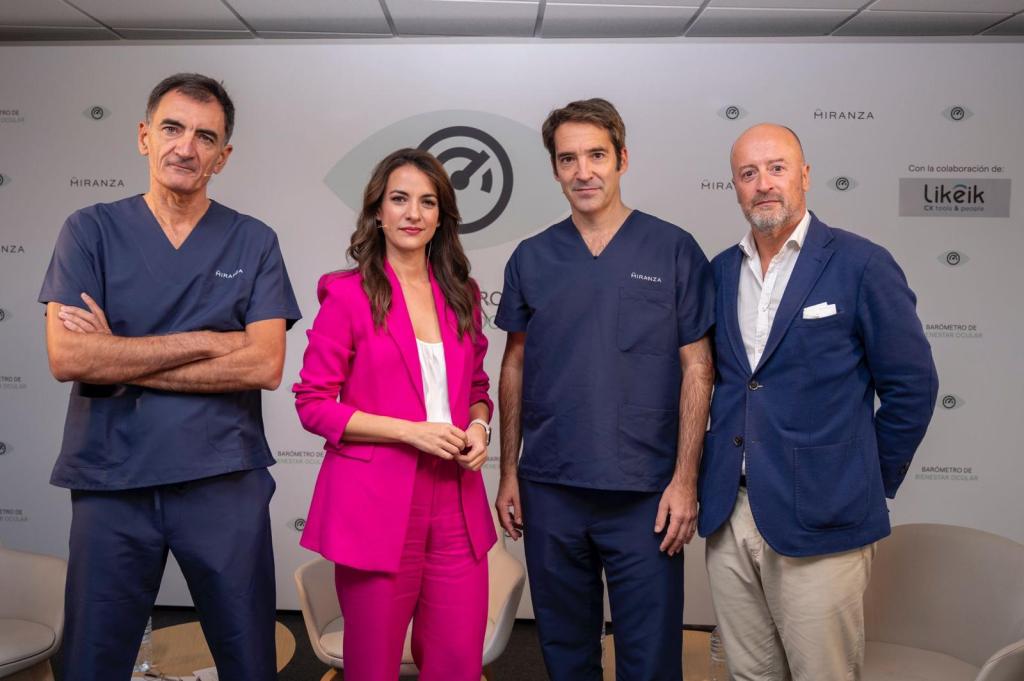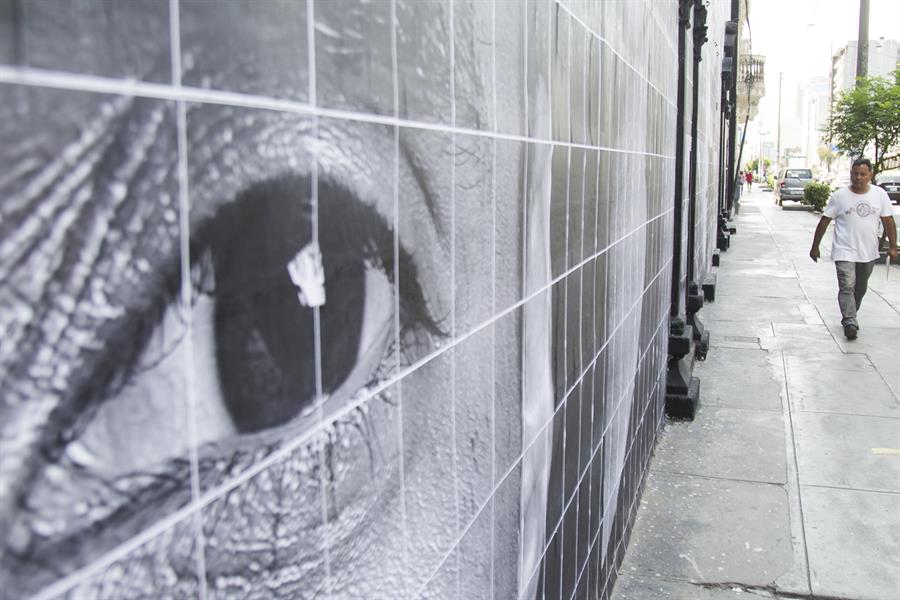

The ocular status of Spaniards barely gets a pass, with a score of 5.20 out of 10, practically the same as last year (5.22), which indicates that the ocular health of the population is not improving, and even, gets worse, a study reveals. An unhealthy lifestyle and lack of awareness about the importance of preventing eye pathologies through good habits and periodic check-ups may be affecting the visual health of the population.
Despite this poor rating, 72% of Spaniards perceive their eye health as “reasonable”; although the percentage of people who rate it as “good” or “excellent” is significantly lower (35%).
Besides, 1 in 3 Spaniards presents ocular symptoms, highlighting blurred vision (34.5%), sensitivity to light (33.6%), vision loss (33.3%), irritation (31%) and dryness (30.1%).
Also, Those over 41 years of age are the most affected, obtaining the worst rating among the different age groups, with a score of 4.87.
These conclusions are collected in the fourth edition of the Barometer of Ocular Well-being in the Spanish Population, promoted by Miranzain which a sample of 1,348 Spaniards over 26 years of age participated.
Myopia, the biggest eye problem
Although Spaniards suffer from various vision problems, myopia climbs to first position in the ranking with 37%.
In this way, it surpassed astigmatism (35%) and prescription (32%), which appeared above myopia in previous years.
The least common problem is retinal detachment (1.7%), followed by Glaucoma (2.8%) and strabismus (3.2%).


The importance of habits
For Dr. Juan Pedro Torralaba, one of the Miranza ophthalmologists in charge of sharing the main conclusions of the studythere is no doubt that the habits incorporated into the daily routine influence ocular well-being.
He explains that the results confirm that 55% of Spaniards lead a lifestyle that is not very active or sedentary, which indicates that they carry out activities that require the use of close vision, such as reading on a mobile phone or using a computer.
“The prolonged use of screens today, added to other factors such as the little time we spend outdoors, is a significant threat to ocular well-being. Not only does it cause an increase in discomfort associated with dry eyes or visual fatigue, but it also contributes to the increasing number of cases of myopia (poor distance vision). Over the past 30 years, myopia has increased considerably around the world, becoming a global pandemic that is expected to affect half of the population by 2050 if no preventive measures are taken now. ”says the expert.
Some factors
Experts recognize the long path that still needs to be taken to achieve optimal ocular well-being for Spaniards, with the main problem being the lack of awareness about the importance of leading a healthy lifestyle and the impact it has on our eyes.
Only 49% of Spaniards perceive an association between eye health and lifestyle habitsdespite the already demonstrated relationship that exists between the state of our eyes and sleep, tobacco and alcohol, diet or sports.
On the other hand, more than half consider that Factors that do not depend on oneself, such as heredity (66%), pollution (63%) or climate (50%), can affect eye health, which is also true.
Another factor that impacts eye health is stressan emotional state that causes metabolic changes and can cause visual alterations such as central serous chorioretinopathy, a pathology that affects the retina.
In relation to this condition, the Miranza Barometer points out that people who admit to suffering from stress (54%), also rated their ocular well-being worse.
Prevention, a pending subject
According to the results reflected in the report, 81% of respondents affirm that their eyesight should be checked annually, although, later, The average number of eye checkups does not reach an annual ophthalmological visit (0.67, average frequency of eye checkups per year).
Going to the ophthalmologist once a year is the average frequency that specialists recommendespecially in childhood and from the age of 40, when the prevalence of many ocular pathologies due to age begins to increase, such as Age-Related Macular Degeneration (AMD) or glaucoma, as well as natural functional problems of aging, such as presbyopia or eyestrain and cataract.
Regarding the impact of poor vision on daily life, the sample agrees that Vision affects the ability to drive (52%) and work (47%) and, to a lesser extent, but in a not insignificant percentage, recognizes that It negatively impacts their ability to socialize (25%) and even “my desire to leave the house” (21%).
Likewise, there is a part of the population that associates their vision problems with a feeling of insecurity (25%), frustration, dependency and even shame (10%), which strengthens links between problems that affect vision and depressive processes.
Resgination
Despite all this, the study shows that 59% of Spaniards consider that it is not possible to avoid vision loss (only 4 out of ten consider that it is).
Likewise, the survey shows the low rate of treatment to reverse or stop vision problems, which could be related to little knowledge or lack of confidence in the existence of effective surgeries, drugs and technology to improve our ocular health or well-being and, therefore, our quality of life.
Dr. Aritz Urcola, the other Miranza ophthalmologist who has presented the barometerexplains that many patients resign themselves to living with discomfort or pathologies, and, in many cases, are unaware that it can be treated effectively, either in consultation or surgically.
“In serious and chronic pathologies, such as glaucoma, it is especially important to act, since it causes gradual and irreversible loss of vision,” warns the expert.


Recommendations for the eye health of Spaniards
The Miranza barometer includes a series of recommendations to achieve the best possible ocular well-being:
- Acquire good habits: “Mediterranean lifestyle” (nap, healthy eating, life
social/family and leisure plans…) - Visit the ophthalmologist regularly.
- Put yourself in good hands and receive treatmentif there is a pathology or defect that bothers us or
pushes us into isolation. - Avoid a sedentary lifestyle, encouraging a more active life in open spaces
- Work on strategies to reduce stress level.
- Ask for psychological support or get tools to avoid or mitigate depressive processes
linked to vision problems. - Between the ages of 40 and 65, approximately, dedicate time to yourselfbeyond work and dedication to the previous and subsequent generations.
The conclusions of the study
- The 2024 Barometer shows a tendency towards stagnation in Eye Wellbeing, with a 5.20,
practically the same grade as last year (5.22) - Those over 41 years of age fail (4.90).
- A sedentary lifestyle and close vision, stress, dependence on glasses or contact lenses, and age worsen our own perception of ocular health, which, in general, we rate well below “general health.”
- 35% rate their eye health as “good” or “excellent” compared to 58% who rate their general health this way, which makes vision a weak point in the health of Spaniards.
- There is great consensus on the importance of taking care of your vision, on its key role in enjoying life and on the convenience of having it checked annually, although the majority do not do so.
- Myopia, which already affects almost 40% of the population, climbs to the first position in the ranking of
visual problems, ahead of other refractive errors and presbyopia or “eyestrain” - 1 in 3 Spaniards has ocular symptoms, highlighting blurred vision, sensitivity to light, loss of vision, irritation and dryness.
.
